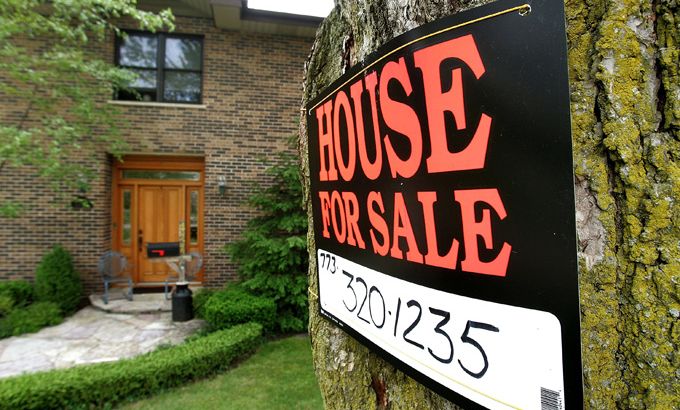
Can the US’ housing woes be fixed?
As the country’s largest banks enjoy rising profits, millions of Americans remain indebted.
Four years ago the US government spent hundreds of billions of dollars in taxpayer money to shore up a financial system on the brink of collapse. Today, the largest banks in the country have seen quarter after quarter of rising profits.
|
“We don’t have a housing crisis … We have three times as many empty homes as homeless people … housing stock is not our problem. We have a human rights crisis and a political crisis that led to this unwillingness to address the problem at its root cause.“ – Cathy Albisa, a constitutional and human rights lawyer |
Meanwhile, around 30 per cent of US home owners with a mortgage owe more on their loan than their home is worth. Many of them live in the swing states that will determine who will win the 2012 election.
Keep reading
list of 4 itemsWhy is Germany maintaining economic ties with China?
Behind India’s Manipur conflict: A tale of drugs, armed groups and politics
China’s economy beats expectations, growing 5.3 percent in first quarter
While campaigning in 2008, Barack Obama promised to help those facing foreclosure, but as president he has only supported limited programmes providing lenders with incentives to restructure troubled mortgages.
In February 2009, Obama announced a strategy he said would help victims of the US mortgage industry: “We have reached a landmark settlement with the nation’s largest banks. It will speed relief to the hardest-hit home owners, end some of the most abusive practices of the mortgage industry, and begin to turn the page on their recklessness that has left so much damage in its wake.”
During this year’s State of the Union address Obama again discussed plans to help home owners, saying: “While the government can’t fix the problem on its own, responsible home owners shouldn’t have to sit and wait for the housing market to hit bottom to get some relief.
|
“It’s not what the elected officials or politicians promised to do for us but it’s what programme we can put together ourselves, and put forward and compel those who are running for office and those who are vying for votes. How we can compel them to agree and compel them to do?” – Max Rameau, the co-founder of the Take Back the Land Movement |
“That’s why I’m sending this Congress a plan that gives every responsible homeowner the chance to save about $3,000 a year on their mortgage, by refinancing at historically low interest rates. No more red tape. No more runaround from the banks. A small fee on the largest financial institutions will ensure that it won’t add to the deficit, and will give banks that were rescued by taxpayers a chance to repay a deficit of trust.”
Inside Story: US 2012 asks: Can some of the innovative ideas to fix the housing crisis succeed without significant government support?
Joining presenter Shihab Rattansi for the discussion are guests: Cathy Albisa, the co-founder of the National Economic and Social Rights Initiative; Robert Hockett, a law professor at Cornell University; and Max Rameau, the co-founder of the Take Back the Land Movement.
|
“There are a lot of structural impediments to those changes being made, changes that would be benefitting the creditors as well as the debtors, and the rest of the country because the single, heaviest drag on economic recovery right now still is this ongoing debt crisis.” Robert Hockett, a law professor at Cornell University |
SWING STATES AND FORECLOSURES:
- Foreclosures and housing problems could have a major impact on the upcoming US presidential election. Five out of 10 states with the highest foreclosure rates are swing states – Nevada, Florida, Ohio, Michigan and Colorado.
- In Nevada, one in every 307 homes was in foreclosure during the first part of 2012. There are also nearly 340,000 underwater mortgages, meaning more than 600,000 eligible voters owe banks more than what their home is worth.
- In Ohio, one out of every 508 homes was in foreclosure between January and June of 2012.
- There are more than 500,000 mortgages that are worth more than the current home value, and that makes up more than a million eligible voters.
- In Colorado, one in every 608 mortgages is in foreclosure. There are more than 235,000 underwater mortgages representing well over a quarter of a million eligible voters.